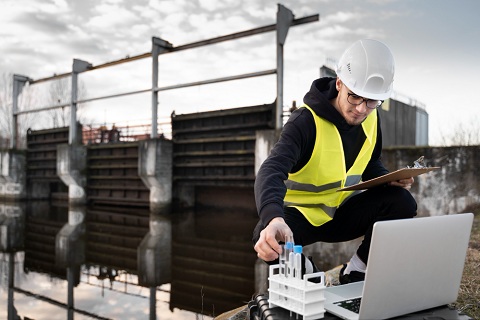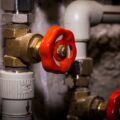Innovations in Smart Plumbing Technology, driven by the Internet of Things (IoT), are reshaping the landscape of water management. With a pressing need to conserve and manage water resources efficiently, the integration of IoT into plumbing systems has brought forth revolutionary advancements. This article delves into the profound impact of IoT on water management and highlights the key innovations that are transforming the way we handle water.
The IoT Revolution in Water Management
Smart Plumbing Technology is ushering in a new era of water management, where traditional methods are being replaced with intelligent, data-driven systems. These innovations are contributing to increased efficiency, reduced wastage, and improved sustainability.
Real-time Monitoring and Leak Detection
IoT-enabled sensors and devices now offer real-time monitoring of water usage and flow. These devices can swiftly detect leaks, notifying homeowners and authorities promptly. This technology not only prevents water loss but also helps in averting potential damages caused by leaks.
Smart Water Meters
Smart water meters provide users with accurate insights into their water consumption patterns. These meters can be accessed remotely, allowing users to track their usage and make informed decisions regarding conservation.
Automated Water Quality Analysis
IoT devices equipped with water quality sensors can analyze water composition and detect contaminants in real time. This feature ensures that the water being consumed is safe and of high quality.
Enhancing Water Conservation
The integration of IoT technology into plumbing systems is playing a pivotal role in water conservation efforts.
Adaptive Irrigation Systems
Smart irrigation systems use weather forecasts and real-time data to adjust watering schedules based on current conditions. This prevents over-irrigation, reducing water wastage in agriculture and landscaping.
Intelligent Appliance Connectivity
IoT-enabled appliances like washing machines and dishwashers can sync with smart plumbing systems to optimize water usage. These appliances can adjust water levels and cycle lengths based on load and soil conditions.
Empowering Users with Data
One of the significant advantages of IoT-driven plumbing technology is the empowerment it offers to users through data insights.
Personalized Water Usage Analytics
Smartphone apps and online portals allow users to access detailed information about their water consumption. This data empowers individuals to identify areas where they can cut down on usage.
Leak Prevention Notifications
Smart plumbing systems can send alerts to users’ devices when a leak is detected, enabling swift action to prevent further water loss.
Overcoming Challenges
While IoT-driven plumbing innovations hold immense promise, they also come with certain challenges.
Data Security Concerns
The interconnected nature of IoT devices raises concerns about data privacy and security. Ensuring robust encryption and authentication protocols is crucial to safeguard user information.
Initial Investment
Adopting smart plumbing technology requires an upfront investment in devices and installation. However, the long-term savings from reduced water bills can offset this initial cost.
FAQs about Innovations in Smart Plumbing Technology: How IoT is Revolutionizing the Way We Manage Water
IoT devices use sensors to monitor water flow patterns. Sudden deviations from the norm can indicate leaks, triggering alerts for prompt action.
Absolutely! By optimizing water usage and detecting leaks, smart plumbing systems can significantly reduce water wastage and lower bills.
Yes, smart water meters provide highly accurate readings, eliminating the need for manual meter readings and minimizing billing discrepancies.
IoT-enabled irrigation systems use real-time weather data to adjust watering schedules, ensuring efficient irrigation and conserving water.
IoT devices with water quality sensors continuously monitor water composition and can alert users to any deviations from safe levels.
Yes, data security and privacy are concerns. Manufacturers must implement robust security measures to protect user data from breaches.
Conclusion
The infusion of IoT into plumbing technology is ushering in an era of water management that is efficient, data-driven, and sustainable. Innovations like real-time monitoring, adaptive irrigation, and intelligent appliances are revolutionizing the way we manage water. By leveraging the power of IoT, we can address water scarcity, reduce wastage, and ensure a more sustainable future.


